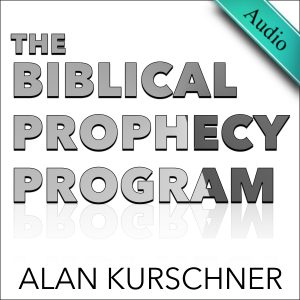Podcast: Play in new window | Download | Embed
 I addressed a prophecy recorded in the book of Revelation that contradicts imminence theology:
I addressed a prophecy recorded in the book of Revelation that contradicts imminence theology:
“Then the voice I had heard from heaven began to speak to me again, ‘Go and take the open scroll in the hand of the angel who is standing on the sea and on the land.’ So I went to the angel and asked him to give me the little scroll. He said to me, ‘Take the scroll and eat it. It will make your stomach bitter, but it will be as sweet as honey in your mouth.’ So I took the little scroll from the angel’s hand and ate it, and it did taste as sweet as honey in my mouth, but when I had eaten it, my stomach became bitter. Then they told me: ‘You must prophesy again about many peoples, nations, languages, and kings.’” (Rev 10:8–11)
John is given a commission that he must (dei) prophesy (prophēteuō) again about what will happen to “many peoples, nations, languages, and kings.” John is commissioned to prophesy about the contents of this scroll. Exactly what the “sweet” and “bitter” refers to is debated among interpreters. The bitterness likely refers to the judgment that will fall upon the nations. Nevertheless, the point I want to highlight is that John is told to prophesy again. Whether the book of Revelation was written in AD 95, which is much more likely, or before AD 70 is not relevant. The point is that Jesus’s return to rapture the church could not have happened before John would carry out God’s plan of prophesying. In other words, Jesus’ return was not imminent before the book of Revelation was written and circulated and read among the seven churches:
“Write in a book what you see and send it to the seven churches—to Ephesus, Smyrna, Pergamum, Thyatira, Sardis, Philadelphia, and Laodicea….Therefore write what you saw, what is, and what will be after these things.” (Rev 1:11, 19; cf. Rev 4:1)
Many of pretrib interpreters have read these verses multiple times in their lifetime not realizing that the teaching therein contradicts imminence theology, because these events would have to occur before Jesus returns. This is just another prophecy in the line other prophecies recorded in the Bible that must happen in the lives of the apostles, in this case, the apostle John. Once again, imminence theology is found wanting.


